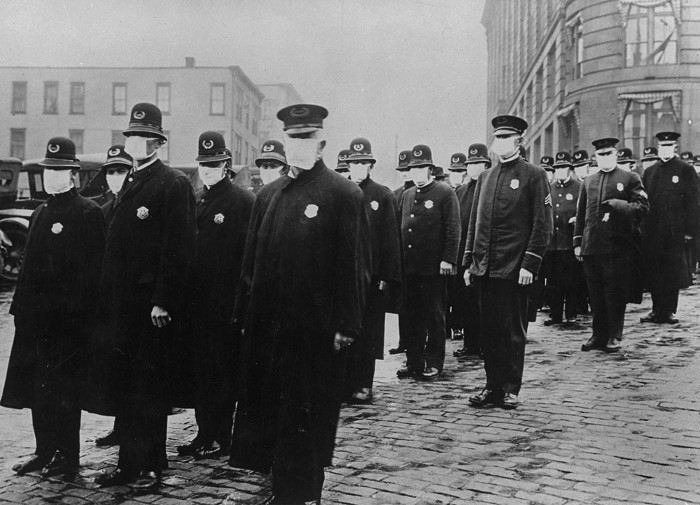The ghost of influenza past and the hunt for a universal vaccine

Police in Seattle, Washington, wear masks to protect themselves during the 1918 flu pandemic that killed nearly 50 million people. Credit: National Archives/Time Life/Getty
By the time she is about three years old, a child has usually endured her first influenza infection. If it’s a nasty bout, her temperature will rise and her muscles will ache. She’s probably young enough that she won’t recall the illness — but her immune system will.
When the virus enters her body, its presence prompts a pool of immature, unprogrammed immune cells to start competing to become the flu’s tracker and assassin. The winners — cells that bind most strongly to the virus — store a memory of the pathogen, ready to recognize and attack it the next time it strikes.
No comments:
Post a Comment